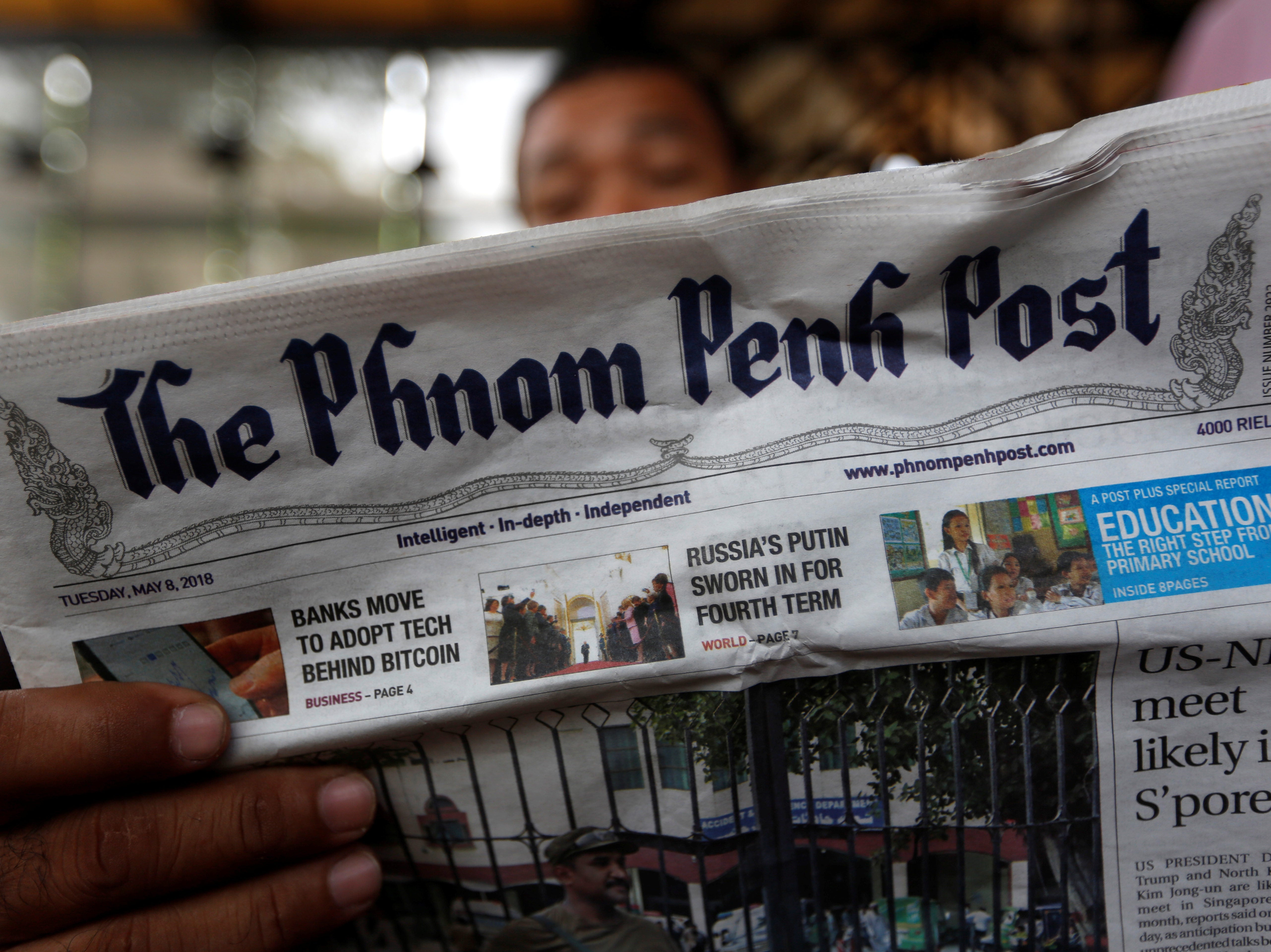
The sale of Cambodia’s longest-running independent newspaper to a Malaysian businessman has been denounced by former staff and trade unions for leaving the country without a free press.
Some 13 journalists announced their resignation from the Phnom Penh Post last week after its new owner requested an article be taken down which confirmed his links to Cambodian Prime Minister Hun Sen.
The former editor in chief Kay Kimsong was asked to remove the article which was critical of Sivakumar Ganapathy’s acquisition of the paper and was fired on 7 May after he refused to do so.
This was in spite of Ganapathy’s earlier claim to “uphold the paper’s 25 year old legacy and editorial principles/independence” in a press statement announcing the sale of Phnom Penh Post.
Ganapathy is also the director of Asia PR which lists “Hun Sen’s entry into the government seat” as one of several government related projects it was involved with.
The firing of Kimsong was followed by the resignation of thirteen other senior editorial staff, including managing editor Stuart White, web editor Jenni Reid, business editor Brendan O’Byrne, senior journalist Ananth Baliga and chief executive Marcus Holmes.
Writing in the Interpreter, former Phnom Penh reporter Erin Handley said: “What we saw yesterday was a scene of mourning, not only for those who are no longer with the Post, but also for the paper’s editorial independence and, more broadly, for press freedom in Cambodia.”
In an open letter published on the Cambodian Centre for Human Rights condemned the move as an attack on media freedom.
The letter, which was signed by 79 civil society groups, said: “This is just the latest in a series of attacks which have devastated Cambodia’s media landscape since mid-2017.
“The Phnom Penh Post was Cambodia’s last remaining independent English-Khmer language daily, and its change of ownership raises serious questions about the paper’s continued independence.”
Phnom Penh Post was founded in 1992 as a daily Cambodian English language newspaper and was the longest running independent newspaper in Cambodia.
Prior to the sale the Cambodian government had hit the paper with a $3.9m tax bill which was written off with Ganapathy’s acquisition of the publication.
The closure of The Cambodia Daily in 2017 followed a Government order to pay a $6.3m tax bill.
Cambodia fell ten places in the latest World Press Freedom Index for 2018, compiled by Reporters Without Borders, ranked 142 out of 180 countries.
These attacks on the freedom of the press come ahead of the Cambodian general election set for 29 July, in which Hun Sen will look to his extend his 33 years in office.
Picture: Reuters/Samrang Pring
Email pged@pressgazette.co.uk to point out mistakes, provide story tips or send in a letter for publication on our "Letters Page" blog
